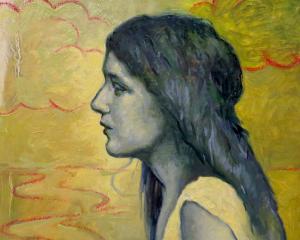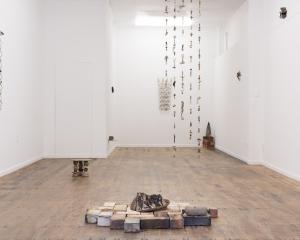
When faced with a difficult choice, people react in different ways. Charmian Smith talks to Helen Fearnley about The Choice, which opens at the Globe Theatre next week.
Human psychology is fascinating. It's never black and white, says Helen Fearnley, who is directing the Globe Theatre's upcoming production of Claire Luckham's The Choice.
''What drew me to this play is the fact it's so real. All the characters are very substantial, very real people and that is because Claire Luckham based it on her own true life experiences,'' she said.
Luckham's brother had Down's syndrome and she wanted the play to be a positive outlook on growing up with someone with the condition.
''I think she was also ambivalent towards the issues rather than having a strong view either way, which is why she wrote this play to work through those issues.''
The writer character is on stage all the time writing the play. The other four characters are in her imagination.
They are Sal and Ray, the couple who are expecting a child, and two medical people, a consultant and a midwife, she said.

''They've got very different viewpoints. For the couple it's their first pregnancy so they are very much fuelled by emotion. The medical professionals obviously have been through this process with hundreds of others; they are just another couple going through the same thing.''
The foetus has chromosomal abnormalities and the couple have to decide whether to have the child or not.
''For me the play is as much about a choice as it is about imagination, because in any human situation when you are faced with a choice, human nature plays out both scenarios to think about your possible futures: what happens if I do this? What happens if I do that?''
For Sal it's an internal process but there are undertones of what she really feels before the chromosomal abnormalities are even mentioned, she said.
''She doesn't want to be pregnant, which to me is a far more interesting human dilemma. To go from 'I don't actually want to be pregnant', then the added complication of whether or not the baby's going to be healthy, is far more interesting than the idea of 'yes, we're happy we're pregnant - oh, something's wrong'.''
While Sal is a journalist who wants to get to the bottom of things, Ray would rather not have had the question thrown at him.
The consultant asks if he really means he'd rather be left in ignorance, even though they can make the diagnosis.
Would it be morally right to withhold it from them, Fearnley says.
Although the play was written in 1992 and some of the medical content is dated, the issues are still relevant.
A doctor friend of hers said they talk about these issues with medical students and the legality of these issues in the future, she said.
''As medical advances go forward, they can test for more and more things. We could get to the point where you could test for any characteristic of an unborn child's physicality or personality if you wish. What do those kinds of questions mean for the choices we face in pregnancy? How long is it before we get to the point of saying we want to eliminate all children who might have criminal tendencies or whatever?''
The themes of the play touch lightly on Fearnley's own life. She often wondered if her mother hadn't had a miscarriage, would her younger brother have been born.
''It's a question that's been part of my life since I was too small to understand. It hasn't really affected my life but it's something I've just had in the back of my mind, that human curiosity that if one baby's born, another isn't.''
Fearnley, who is English, has been involved in theatre all her life, mostly as an actor, studying theatre at university.
She met her partner in Queenstown while backpacking and decided to establish a new life in New Zealand.
They moved to Dunedin because there was so much more theatre here.
Although she has thought about taking up acting professionally she decided the stable lifestyle afforded by a full-time job would allow theatre to remain a passion, a hobby and fun, she said.












